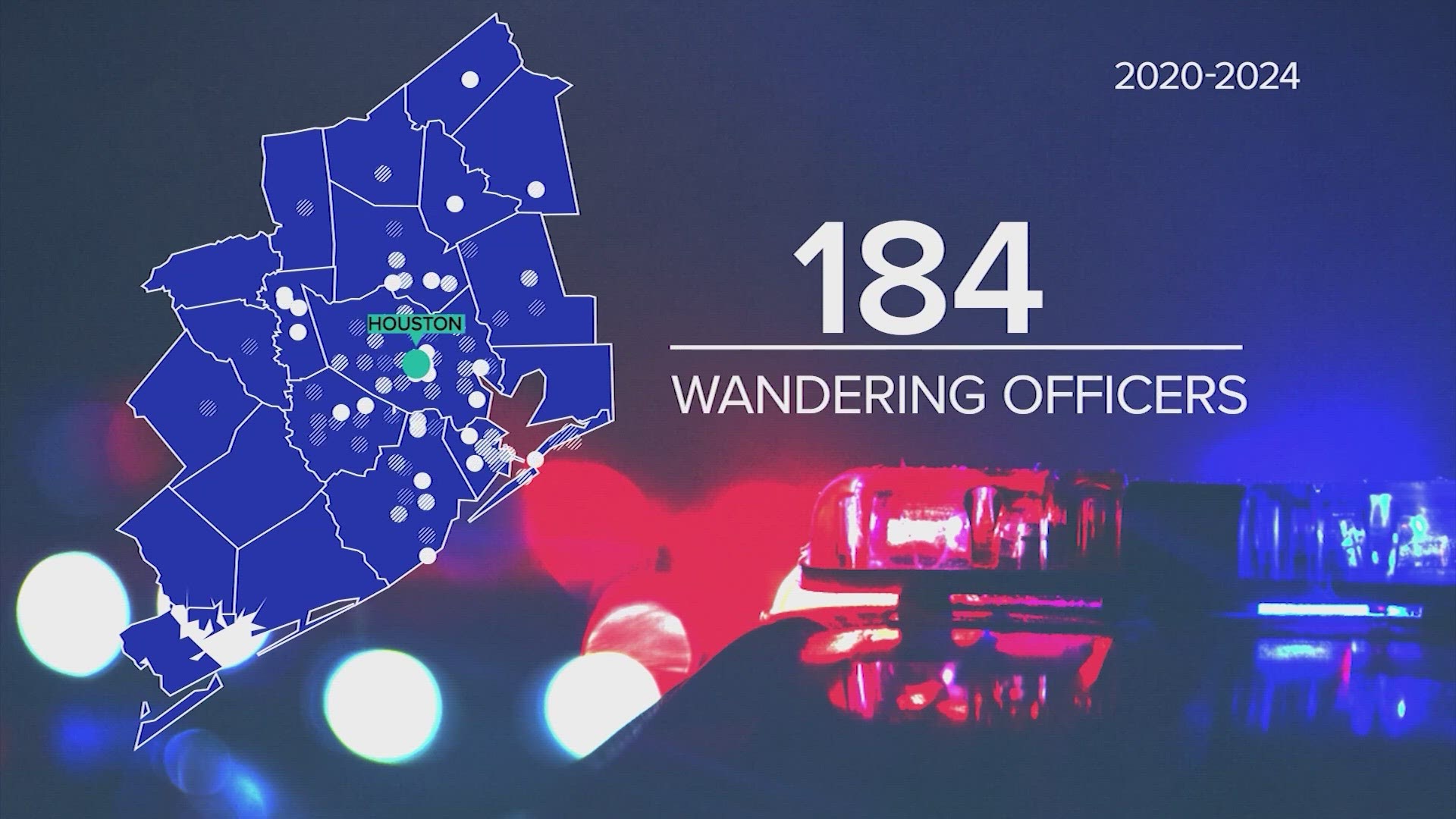HOUSTON — Nearly 200 police officers were fired or resigned for misconduct from one department and later hired at another Houston-area agency, according to a KHOU 11 Investigates analysis of personnel records from 2020 to 2024.
They’re known as “wandering officers,” and a soon-to-be implemented Texas law addresses the problem across the state, by increasing transparency and accountability at the Texas Commission on Law Enforcement, the state agency that licenses peace officers.
“It is an issue that plagues the industry,” new TCOLE Executive Director Greg Stevens said in his first TV interview. “There were real issues. There were real problems. The legislature could see that; they took real steps in the right direction to begin to solve those issues and those problems.”
Senate Bill 1445 gives broader authority to TCOLE, whose approach to regulating law enforcement was “toothless” and “largely ineffective” according to a review by the Texas Sunset Advisory Commission.
A key component of the new law gets rid of the “check-a-box” system on an officer’s official employment separation document. Known as the “F-5” form, it contained broad discharge categories of “honorably,” “general” or “dishonorably,” similar to what the military uses. If cops got an unfavorable rating from an agency, they would often appeal it at a state hearing.
“And more often than not, they were getting them reversed to get an honorable discharge,” said Luis Soberon, a policy advisor with the nonprofit Texas 2036.
The non-partisan think-tank researched wandering officers going back 10 years in Texas, and published the Texas Law Enforcement Data Landscape, a 200-page report and resource for lawmakers as SB 1445 moved through the legislative process.
Soberon said the F-5 discharge categories were often abused as a negotiating tool between troubled cops and their bosses, contributing to the wandering officer problem.
“When an officer was leaving agency A, getting fired from agency A, they might strike a deal to say, ‘I am not going to litigate this further with you if you just give me an honorable discharge,’” Soberon said. “Or a chief might say ‘I do not want the hassle of a drawn-out internal affairs process, so let me just give you an honorable and let you go.’ As we know, they continued to get hired at other agencies again and again and again.”
Going forward, officers who resign or retire before getting fired won’t get off the hook. Under the new law, agencies must complete an internal investigation into alleged misconduct and report those findings to TCOLE.
“And that is one of the very best things out of this new legislation,” TCOLE’s Stevens said.
TCOLE will serve as a central repository for all misconduct reports and require hiring agencies to review them. The goal is to have more consistency in doing background investigations.
“You will be able to get a more complete picture and hopefully the complete picture as to whether or not to hire this individual,” Stevens said.
SB 1445 also standardized the personnel file that hiring agencies are required to check, and requires policies to ensure that officers are “fit for duty” based on medical and psychological exams.
Other reforms require TCOLE to check a national database to ensure that out-of-state officers have clean licensing histories before getting hired in Texas. By Sept.1, 2024, TCOLE also must develop a database where members of the public can view officers’ training requirements and employment history.
“We didn’t have much structure at all for how to deal with wandering officers, now there’s a structure,” said Soberon with Texas 2036. “It is definitely better than what was there before.”
But the new law only goes so far. At the end of the day, it is still the local agency’s call who it wants to hire. TCOLE can only sanction a cop’s license in limited circumstances, such as not completing required training, or getting convicted of a serious crime. The new legislation does not give TCOLE any additional power to revoke a license, even in cases of egregious misconduct.
“I agree with you,” Stevens said. “I’ll be interested to see where we go from here.”
Several TCOLE advisory committees are currently working on rules to implement the reforms mandated by legislators. The new law requires those model policies be submitted for adoption by March 1.

